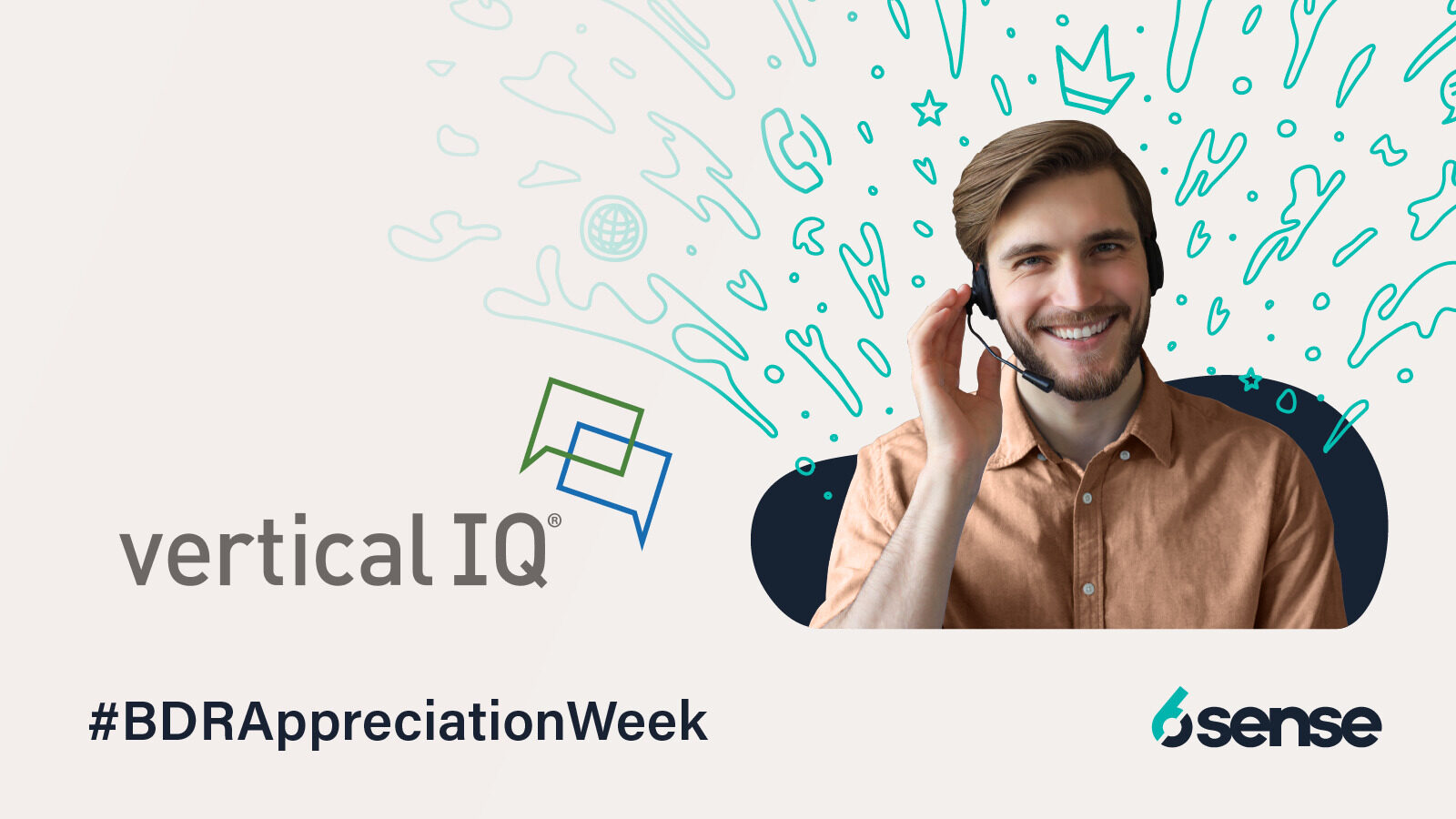Susan Bell is a co-founder and Chief Sales Officer of Vertical IQ. At Vertical IQ, Susan is focused on business development as well as training and coaching the sales team. With more than 22 years working in the business intelligence space, she is driven by building long-lasting client relationships while leading new and experienced salespeople.
As I sit down at the beginning of each year to map out my plan for the next 12 months, one of the things I always do for myself and my team is set a “one-word goal” for the year. And normally, I mull over this for quite some time, trying to search for a theme to run with.
This year, however, it came pretty easy: There is one word that just kept popping up everywhere — in customer conversations, on LinkedIn, through dialogue with colleagues — and that word is curiosity.
Why “curiosity”? For starters, I think curiosity is a mindset we should be approaching every conversation with, professionally and personally. To be curious shows that you have a genuine desire to know more — more about a person, a customer, their circumstances, and their livelihood. It also shows that you are committed to listening — and listening intently — which can go a long way in the sales space.
The focus I emphasized for my sales team this year is “Creating a Culture of Curiosity,” both in terms of the team itself and in relation to our customers. So how can this ABC – “Always Be Curious” – approach be achieved? What steps can you take to create this Culture of Curiosity for your colleagues and customers, and why is it important?
Ask Questions, Care About the Answers
I mentioned the ABC method, which is a very customer-centric approach. Creating a Culture of Curiosity starts with the most basic premise: asking questions. Because you can’t get answers, and therefore implement potential solutions, without asking questions, right?
Well, that’s not the whole story. You can ask all you want, but that customer-centric mindset has to be present in all of your questions. Not only do you need to ask questions, but you need to care about the answers to those questions. That involves:
- Making your customer conversations problem-focused
- Stopping and actually taking the time to deeply listen
- Putting the customer at the center of your interaction — which helps you hone the solutions you can implement to address their pain points.
A “two ears, one mouth” approach to conversation fosters problem-solving as well as getting to the root of your customers’ challenges and providing solutions for those challenges.
Do Your Homework
This is the other essential aspect of the ABC method: In order to ask the right questions and anticipate the right answers, you need to put in the time to do your homework.
Good salespeople are intentional in their approach to conversation, and possessing the curiosity to do the research and figure out both the questions you should ask and the answers you should anticipate puts you in the best position to truly connect with your customers.
Vertical IQ’s Prep Sheets are a perfect tool for this, and they take care of the “research” aspect for you: They provide lists of tailored questions you should be asking customers for particular industries and roles, and each question is followed by the type of answer you should expect to receive from your customers.
Be intentional as opposed to reactionary. If you anticipate a certain answer per your research and don’t receive it, this is a sign that you need to ask more follow-up questions and maintain that curiosity!
Make the Buyer Experience Fun
I recently read a piece from the LinkedIn Sales Blog that brought up a very interesting — and important — point: Many salespeople are way too focused on selling the product rather than the interaction.
In the blog, sales influencer and LinkedIn Sales Insider Morgan J. Ingram wrote, “You need to give a [crap] and have fun with it.” He continued by emphasizing how most salespeople get so caught up in the grind and difficulty of the sales process that they forgo having dynamic conversations and showing their prospects they matter. “Giving a [crap]” shows curiosity and lets a connection happen organically within your customer interactions.
How you communicate matters: Making a conversation product-centered, especially on the first touch, is the easiest way for a customer to either lose interest or peg you as “just another salesperson.” But if you care about your customers enough to engage with their dialogue and make the buyer experience more enjoyable for them, it increases the likelihood they’ll want to move forward into a business relationship.
Recognize the Humanity On the Other End of the Line
Maya Angelou once famously said, “I’ve learned that people will forget what you said, people will forget what you did, but people will never forget how you made them feel.”
This is perhaps the single-most important idea that I hope you will take away from this piece. It is crucial to keep the purpose of what you’re selling in mind: You’re not interacting with a customer just to sell a product; you’re in it to provide a solution to make their lives better and easier. Not only do you have to show them why your product can make a difference and help your customers succeed, you also need to demonstrate enough care and concern to understand them.
Maybe you’re interrupting their day, but you might also be the only person that day who demonstrates curiosity about who they are and what they do. And that is always worth taking a chance on and putting in the effort to increase the likelihood they’ll engage with you.
Bringing an aspect of humanity into all of your sales conversations is at the heart of fostering trust and sustaining enduring relationships with your customers.
And this philosophy is at the heart of VIQ’s business model: Our “3Cs” – Culture, Customers, and Company — are in that order for a reason. We take care of our people first, recognize the humanity present in every interaction, and remain curious about what is happening in their world; and this impacts how we work with our customers and is the backbone of our success.
Learn how Vertical IQ’s Industry Intelligence can cultivate a Culture of Curiosity for your sales team and their customers here!
About Vertical IQ
Headquartered in Raleigh, N.C., Vertical IQ is a nationally recognized leader in Industry Intelligence. Whether they’re pitching a local brewery or a national biotech company, successful sales, marketing and customer success teams use Vertical IQ to better understand a prospect’s or client’s business challenges before, during and after meetings.
Covering more than 560 distinct industries, 3,400 local economies and more than 97 percent of the U.S. economy and Canada, Vertical IQ equips users with the confidence and credibility to make memorable first impressions and sustain enduring relationships. To learn more, visit us at https://verticaliq.com/.



